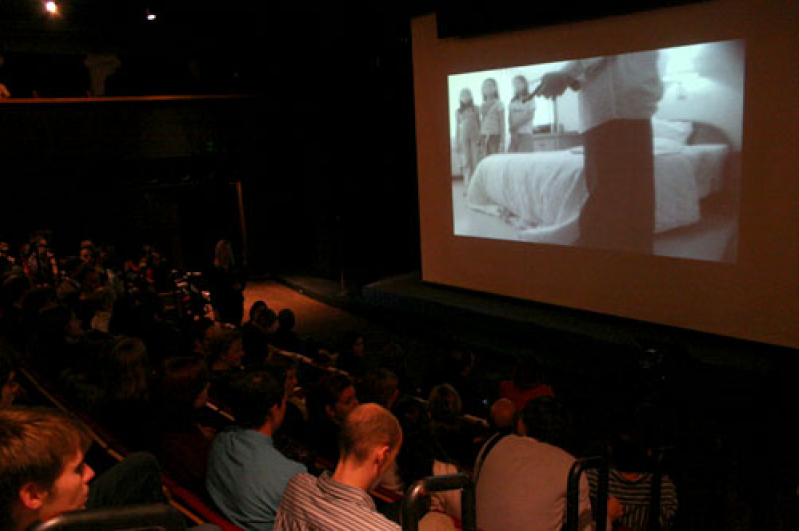
Some call it trafficking, others bondage, but the people behind a new documentary want to call it slavery and talk about the 27 million slaves that exist in the world today.
At the D.C. premiere of “At the End of Slavery” Wednesday night, Ambassador Luis CdeBaca said, “For policy reasons and for feeling better about ourselves, we have tended to hide behind euphemisms.”
CdeBaca, who spoke briefly to support the film that was produced by International Justice Mission, said even though he is the ambassador of the State Department’s Office to Monitor and Combat Trafficking in Persons, he doesn’t want to talk about trafficking.
“I want to talk about slavery because I think trafficking is a word that allows us a little bit of comfort, but this is not something we should feel comfortable about,” CdeBaca said.
The 30-minute documentary “At the End of Slavery” takes the audience into the world of human trafficking through interviews with former slaves and a hidden camera interview with a slave owner, and by exposing the factories and rooms where slaves are exploited for the owner’s profit.
A 14-year-old Indian boy appears at the beginning of the film telling viewers that he was forced to labor at a brick factory since he was seven years old. He said the factory's supervisors tortured so much that he didn’t have time to think about anything else but work.
Many child laborers his age are forced to work for 12 to 14 hours a day, seven days a week at factories because their parents were tricked into an unfair agreement with money lenders, IJM explains.
IJM, a human rights agency that rescues victims of slavery and works with local governments to prosecute perpetrators, said it is currently working on human bondage cases in India, where slave laborers have no hope of paying off debts they're working to clear. If a man in the 1920s had borrowed the equivalent of $5 to $8 today, for example, his grandchildren would still be working as slave laborers to pay off the debt because of the unfair interest rate.
Ted Haddock, the film’s director, said a unique element of the documentary is that it presents the rule of law as an important tool in fighting bondage slavery. IJM and its team of international lawyers combat slavery by using a country’s justice system to prosecute those who sell or buy slaves.
IJM leaders say that once a few offenders are convicted and sent to jail, a powerful message is sent to the community that the government will not tolerate this practice and those who exploit people should get out of the business.
At the end of the event, each of the nearly 300 people who attended the screening received a “Party-in-a-box” kit that includes two screeners, postcards to send to their representatives in Congress, and donation commitment cards.
The human rights ministry hopes to mobilize a grassroots movement in the United States using the film to tell lawmakers that they want the human trafficking issue to be higher on the nation’s policy agenda.
More than 50 churches have already signed up to receive the kit and show a screening of the documentary to their congregation.







